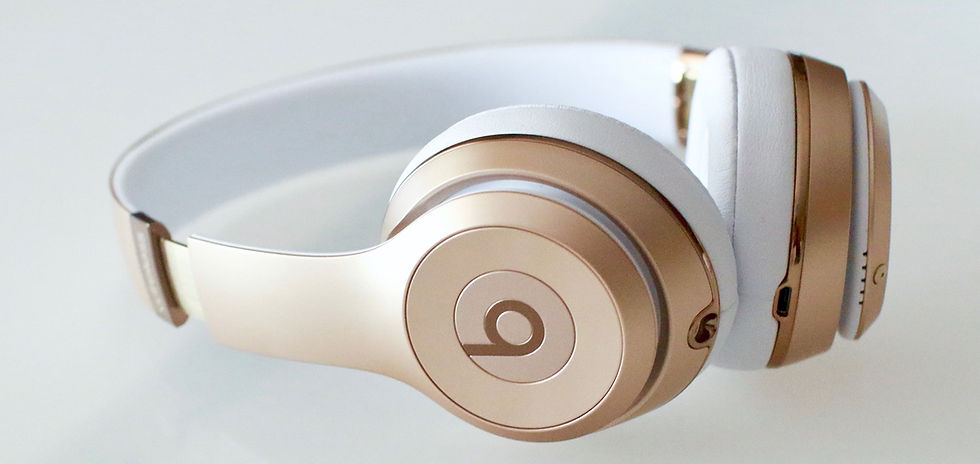The Internet of Things (IoT)
- Alen Belavic

- Sep 17, 2020
- 4 min read

Let us dive into the rabbit hole that is known as The Internet of Things (IoT). Long gone are the days of Bluetooth, the penultimate technological innovation which allowed us to connect to other devices and be masters of our gizmos. Sharing photos, trading music and sending our awesome ringtones to friends. Even though Bluetooth still lives today, it's just kind of meh. With more and more options regarding connecting our devices we are spoiled for choice. There are more and more options for connecting devices with each day and we kind of forgot about our baby steps. Smart TV's, Alexa, Echo, smart window blinds, smart mirrors, smart cars and even smart homes. The Internet became the ultimate connecting „device“. There are a lot of theories on why it actually pushes us further from each other with the guise of connecting, but let's just stick to the novel and exciting premise of it. Premise of being connected to our devices, and them being connected to each other. Let me tell you about The Internet of Things.
What is the IoT?
Simply put the IoT is a term used to describe the Skynet takeover, kidding of course, but kind of being real as well. It's a term used for all of the devices which are connected to the internet, but it's used even more in describing devices connected to the internet, which talk to each other. A scary thought, a bunch of inanimate objects talking to each other and we can't even see it. But are they inanimate if they communicate?
As Matthew Evans, the IoT programme head at TechUK describes it „Simply, the Internet of Things is made up of devices – from simple sensors to smartphones and wearables – connected together.“ And when combined with automated systems a new possibility emerges, the possibility to „gather information, analyze it and create an action.“

Ultimately, IoT is a concept, actually not a concept more of a working mechanism? In which all of the electronic devices that can be connected to the internet, are connected to the internet. This connection allows them to communicate with each other, share data and work in a strategic way using sensors and so on. This means our daily lives become easier and more practical. You wake up in the morning, the smart watch on your wrist tells the blinds on the windows „He's up, might want to give him a little sunlight?“ On your way to work the GPS figures the fastest route and if there is a hiccup your phone automatically notifies your place of work that you will be late.
The IoT doesn't just change our lives to be more practical, there are loads of industrial changes as well. The IoT provides a ton of data between devices, data used to shed production costs, save money and work on more innovations.
What does the future look like?
The future is shaping up to be a lot like Sci-Fi, it will be like living in the Blade Runner universe. You come back from home the sensors notice, lights are dimmed, TV turns on with your favorite show, the blender starts making margaritas. Not sure if there were many margaritas in the movie, but there should have been.

In 2018. there were estimates of 22 billion connected devices by 2020. and new estimates suggest that there will be 125 billion devices connected to the IoT by 2030. With the massive evolution of this technology, more and more companies want to invest in it, estimated investments reach numbers like 1.1 trillion dollars by 2023. It's safe to say that with the funding and advancements in technology, the IoT might just be the future. Something newer generations will grow up with and think of as the new norm.
Concerns
The IoT is, can and will be the hot topic of conspiracy theorists. All of these devices talking to each other, in secret, what’s to stop the AI from becoming sentient? Even Elon Musk doesn't take the AI topic lightly and is advocating constraint when it comes to its development. (Should I have called it IT? Can it/he/she become mad?)
But it doesn't raise concerns just for conspiracy theorists and space pioneers, it raises privacy concerns for everyone. If all the devices are connected, our whereabouts are known at all times. Not just our whereabouts, the locations of our loved ones, vast pools of data regarding us and everyone we know in reach of strangers. And it all might be the next part of our evolution, our drive to develop something better, something that helps us cross to the new age.

One of the more pressing concerns regards sceptics, people who brush of advances in technology and underestimate its potential. Underestimating the evolution of technology in 2020. is just plain silly. Ashkan Fardost had a great example of it in his 2015. TedxTalk. There is a quote by a Newsweek journalist in 1995. laughing off estimates of people buying newspapers and books over the Internet. In 2012. people spent more than 1 billion US dollars a day online, and it's the same year Newsweek ended its print run and turned completely digital.



Comments